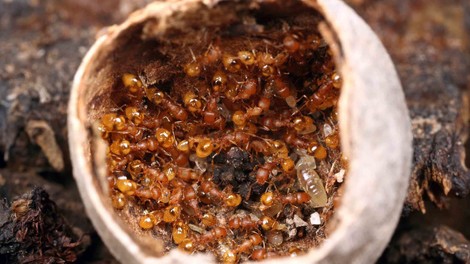Your podcast discovery platform
Curious minds select the most fascinating podcasts from around the world. Discover hand-piqd audio recommendations on your favorite topics.

piqer for: Global finds Technology and society Health and Sanity
Nechama Brodie is a South African journalist and researcher. She is the author of six books, including two critically acclaimed urban histories of Johannesburg and Cape Town. She works as the head of training and research at TRI Facts, part of independent fact-checking organisation Africa Check, and is completing a PhD in data methodology and media studies at the University of the Witwatersrand.
Natural Selection As Machine Learning ... For Ants?
Why should a story about ants, climate change and natural selection fall under a section about technology? Well, because it presents an interesting way to view data from a recent study looking at the genetic effects of urbanisation on a number of small animal and bug species, including super-tiny acorn ants.
Ants have been used to study everything from computer networks to traffic jams to outer space. It's no great stretch of the imagination to view natural selection and or evolution, which are not necessarily the same of course, as a naturalistic template (the original template?) for machine learning. And why is this model useful? Because it reminds us that this type of learning entails finding solutions to problems, based on the supplied data. And, when the data changes, the solutions need to change.
So, back to those ants. This article in Undark starts by looking at studies on how certain ants have adapted to the warmer temperatures of urban environments (cities tend to be warmer because we have lots of concrete, exhaust fumes and so on). This temperature difference is important because it's also a climate change analogue. Several other species, not just the ants, have adapted similarly in response to urbanisation — and, what this paper suggests, this is not just a behavioural adaptation but often a genetic one. There are, of course, interesting behavioural adaptations too, such as birds that have learned to sing at higher pitches in urban environments in order to be heard over the city buzz.
Significantly, the research on the acorn ants shows that, in these conditions, evolution or genetic adaptation can happen remarkably quickly — that is, much quicker than normal evolution cycles. Seeing how birds and bugs respond to this unintentional (or at least non-deliberate) natural–artificial selection pressure could reveal important information about how our urban eco-systems might adapt and change as our planet changes.
